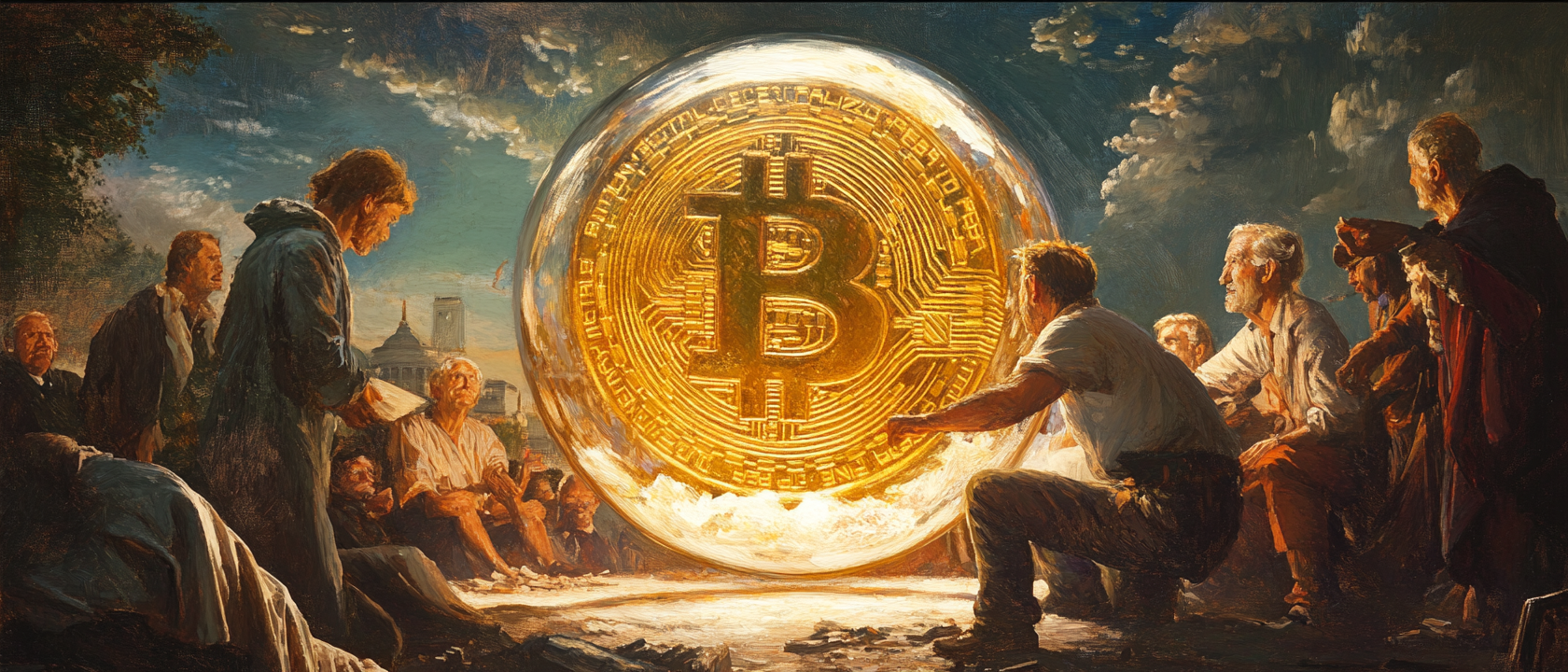

From Bitcoin's legal battles to economic shifts, our experts share their most compelling forecasts.
Another week of conversations with sharp minds thinking about Bitcoin's future and the broader economic landscape. Here are the three most compelling predictions from recent episodes.
James made a prediction that sent chills through the Bitcoin development community - he believes Bitcoin Core's current governance structure will reach a breaking point this year over covenant proposals like CTV. After working as a Core developer for nearly a decade, he's convinced that the organization's inability to make progress on scaling solutions will force alternative implementations.
His timeline is specific and urgent. James believes that if Core doesn't show "substantive review discussion about how we get this stuff in" within six months, credible developers will start building alternate activation clients. The technical argument is compelling: covenants like CheckTemplateVerify have been thoroughly reviewed for seven years, with a 5 BTC bounty (worth over $500,000) still unclaimed for finding material bugs.
The stakes couldn't be higher for Bitcoin's future. James noted that currently "just over two and a half percent of Americans would be able to, on a monthly basis, buy Bitcoin on an exchange, withdraw it to self-custody, and then maybe make a spend." Without scaling solutions, this number won't improve meaningfully. His prediction reflects growing frustration with Core's de facto monopoly over protocol development. "You simply can't ignore that there is a social reality to being in that world," he said, referring to the concentrated funding and decision-making power that has created what he sees as an unsustainable bottleneck for Bitcoin's evolution.
Dr. Anas delivered a sobering prediction about America's energy infrastructure failing to keep pace with exploding AI demand. He expects we'll see significant blackouts in major cities within the next few years, with a particularly concerning scenario where AI facilities maintain power while residential areas go dark. "I will not be surprised if we end up with a situation like this in some states and some cities," he warned.
The mathematics behind his prediction are stark. Energy consumption is skyrocketing due to multiple factors: urbanization, AI data centers, and simple population growth. When migrants move from rural areas to U.S. cities, their energy consumption increases by 30-70 times. Meanwhile, AI facilities require massive baseload power that renewable sources simply cannot provide reliably.
The infrastructure problems run deeper than just generation capacity. Anas explained that America's electrical grid is aging and wasn't designed for this level of demand. Even worse, we lack the manufacturing capacity to produce enough natural gas turbines - the only realistic solution for reliable baseload power at scale. He predicts this will create a dangerous political dynamic where tech companies with guaranteed power contracts maintain operations during blackouts while regular citizens lose electricity. "We might see a backlash from the population, and we will see politicians basically being forced to fight them because of that."
Bram made a stark prediction about the collision between artificial intelligence and millennial career paths. He believes that traditional knowledge-based jobs will become obsolete much faster than people expect, forcing an entire generation to completely rethink their working lives. "If you think you're going to work for the next 30 years of your life, think again," he warned during our conversation.
His argument centers on the rapid advancement of AI capabilities that he's witnessed firsthand. After spending just 12 hours working with AI tools, Bram claims he developed what could be "a top 10 cybersecurity invention" - despite having no cybersecurity background. This experience convinced him that jobs requiring strict knowledge and logic are already dead. The implications are massive for millennials who built their careers around expertise that AI can now replicate instantly.
The timing couldn't be worse, as Bram notes that this technological disruption is happening precisely when millennials need stable income to support families and prepare for retirement. His solution? Use Bitcoin to create the time and space needed to figure out how to function in an AI-dominated world. "You need to be aware of that. This is where it's going. So how do you protect yourself in an age of AI? Bitcoin is the perfect way to do that."

Parasite Pool's radical zero-fee structure challenges mining giants by guaranteeing payouts to small miners while rewarding block finders with instant Bitcoin. It disrupts traditional mining with a hybrid payout model that gives block discoverers 1 BTC immediately, while distributing remaining rewards (~2.125 BTC plus fees) among all pool participants. This "plebs eat first" approach targets the 22% discount miners typically accept in exchange for guaranteed income.
Key innovations that matter:
The pool currently commands just 5 PH/s (0.000006% of Bitcoin's network), meaning an expected 3+ years before hitting a block. But this represents a growing counterculture against Full Pay Per Share (FPPS) pools that dominate corporate mining.
Industry impact: If successful, Parasite Pool could attract commercial miners seeking downside protection while maintaining the lottery appeal that drives pleb participation. The model challenges the structural advantages of corporate mining pools.
What's next: ZK Shark plans to open-source components over time, with the current beta suggesting this is just "V1" of a broader disruption strategy.
Subscribe to them here (seriously, you should): https://newsletter.blockspacemedia.com/
Ten31, the largest bitcoin-focused investor, has deployed $150M across 30+ companies through three funds. I am a Managing Partner at Ten31 and am very proud of the work we are doing. Learn more at ten31.vc/invest.
Get this newsletter sent to your inbox daily: https://www.tftc.io/bitcoin-brief/
STACK SATS hat: https://tftcmerch.io/
Subscribe to our YouTube channels and follow us on Nostr and X: